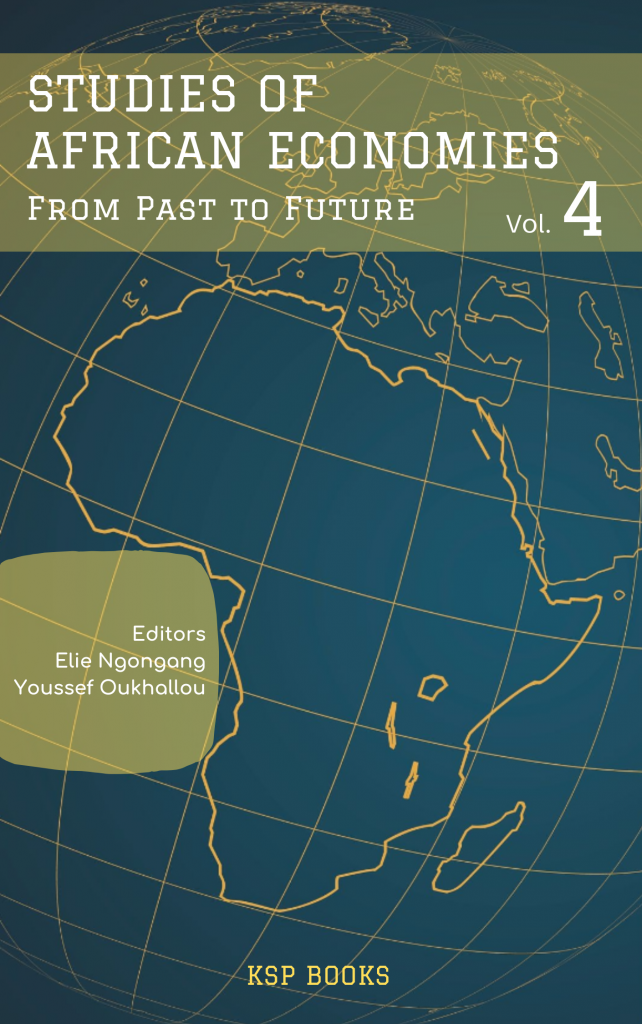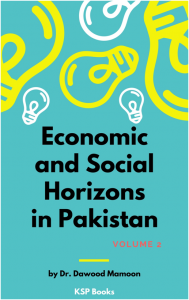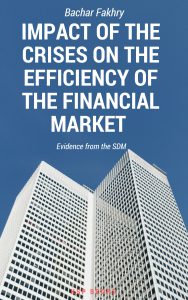Studies of African Economies
Synopsis
Ch.1) This chapter assesses the impact of road infrastructure investments on the structural competitiveness of Burkina Faso’s economy. After retaining the period from 1980 to 2015, the estimate of the Model to Error Correction (ECM) revealed that investment in road infrastructure positively and significantly affects the structural competitiveness of the economy. However, this incidence varies over time. In fact, the elasticity of structural competitiveness compared to road investments is 0.06 in the short term and 0.32 in the long term. In view of these results, it appears that the implication of economic policy that emerges is that an increase in investment in road infrastructure is a policy of gaining structural competitiveness of the country’s economy.
(Ch.2) Natural resource redistribution and ownership transfer programs are introduced as a way of improving income distribution and alleviating poverty in rural areas of most developing countries. In the case of South Africa, these redistributive policies are implemented in line with the national development plan targeting extreme poverty alleviation and reduction of wide income disparities by 2030. This paper analyses the distributive effects of the land redistribution policy which is a shock in the agriculture sector on poor household income in South Africa by applying a multiplier decomposition and structural path analysis. The study contributes to the existing literature by providing a microscopic analysis of the global multiplier to show the transmission mechanism of household income from a shock into the agriculture sector and show how income moves across sectors, factors and households by dividing the multiplier effects into all its components. The results showed that poor households received higher direct effects and the rich households received high indirect effects from the shock in the agricultural sector. The structural path shows that a significant portion of the global influence of the shock in agriculture is transmitted through the path of factor income which in turn increases poor household income.
(Ch.3) The stock exchange price is the value of a security which is determined when supply meets demand in the stock exchange market at a given time t. In this paper, we attempt to define shares evaluation models based on accounting variables. The family of these models goes from the referential theoretical model with its empirical variants to the models of practitioners. Our models make it possible to establish the pertinence of diverse or variables in the cross-sectional explanation of the differentiations observed in Sub-Saharan Africa between the price of a share and its accounting value. We show 9 rival models which integrate two models that are widely accepted in the North American justice system. Our tests show that accounting variables which affect the cross-sectional distribution of stock exchange prices, take account of the book value of the share, invested capital and flow variables.
(Ch.4) We provide the first spreadsheet data series and legislative history of Zanzibar’s Board of Commissioners of Currency (1908-1935) and examine to what extent it operated as an orthodox currency board. The paper makes the annual balance sheets and monthly financial statements of the currency board available in machine-readable form for the first time, in a companion spreadsheet workbook and also offers a summary of legislation related to currency and banking for further analysis of the period.
(Ch.5) From 2007-2009 Zimbabwe underwent a hyperinflation that culminated in an annual inflation rate of 89.7 sextillion (10^21) percent. Consequently, the government abandoned the local Zimbabwean dollar and adopted a multi-currency system in which several foreign currencies were accepted as legal tender. The most prevalent currency in that system is the U.S. dollar. Without official recognition of dollarization, however, the government enacted laws allowing Zimbabwe to evade the budgetary discipline required from dollarized economy, exposing itself to more potential monetary crises. This paper highlights important Zimbabwean government actions post-April 2009 and analyzes their effects on the Zimbabwean economy. It also explains Zimbabwe’s general financial situation and the major reforms needed to avoid another crisis.
(Ch.6) We provide the first spreadsheet data series for the Cassa per la CircolazioneMonetariadellaSomalia (loosely translated, Somalia Currency Office), which operated in what is now southern Somalia from 1950-1960, and examine the extent to which it operated as an orthodox currency board. The paper makes the annual balance sheets and income statements of the currency board digitally available and translated into English for the first time. These are included in the companion spreadsheet workbook, along with a summary of legislation related to the Cassa and history of the territory, which are contained in the appendices.
Contents
Chapter I
| Impact of road infrastructure investments on the structural competitiveness of the Burkina Faso economy
M. Sigue |
Chapter II
| Modeling the distributive effects of an agricultural shock on household income in South Africa: A SAM multiplier decomposition and structural path analysis
J. Mukarati, I.P. Mongale, & G. Makombe |
Chapter III
| Accounting variables and differentiation of stock exchange prices in Sub-Saharan Africa
E. Ngongang |
Chapter IV
| Before Entering the East African Currency Board: The Case of Zanzibar (1908 – 1935)
M. Licursi |
Chapter V
| Zimbabwe’s unorthodox Dollarization
E. Bostrom |
Chapter VI
| Was the cassa per la circolazione monetaria della Somalia an orthodox currency board?
N. Naparst |
About Editor[s]
ISBN
978-605-7736-56-7
Date of Publication
December 15, 2019
File Size: 3595 KB
Length: xiv + 156 pages
This work is licensed under a Creative Commons Attribution 4.0 International License.
















